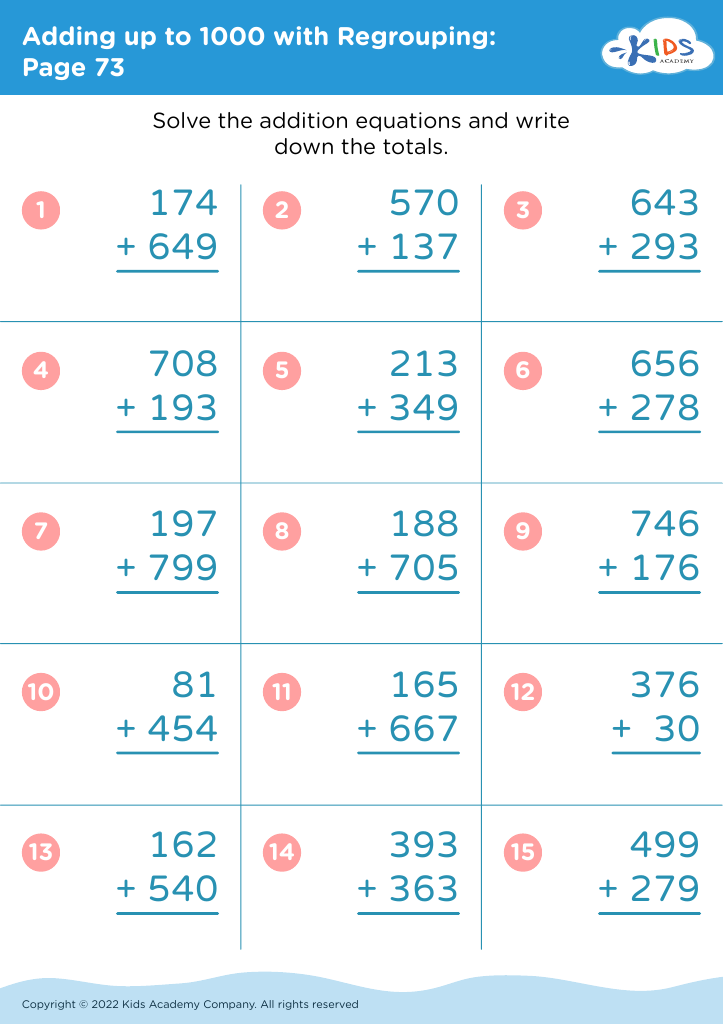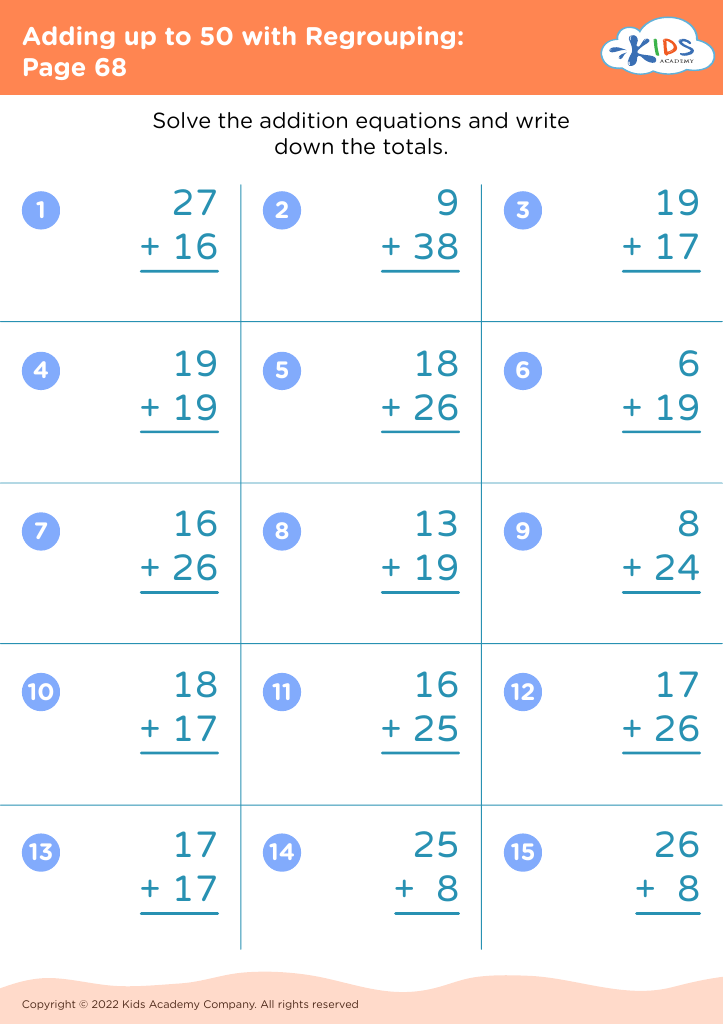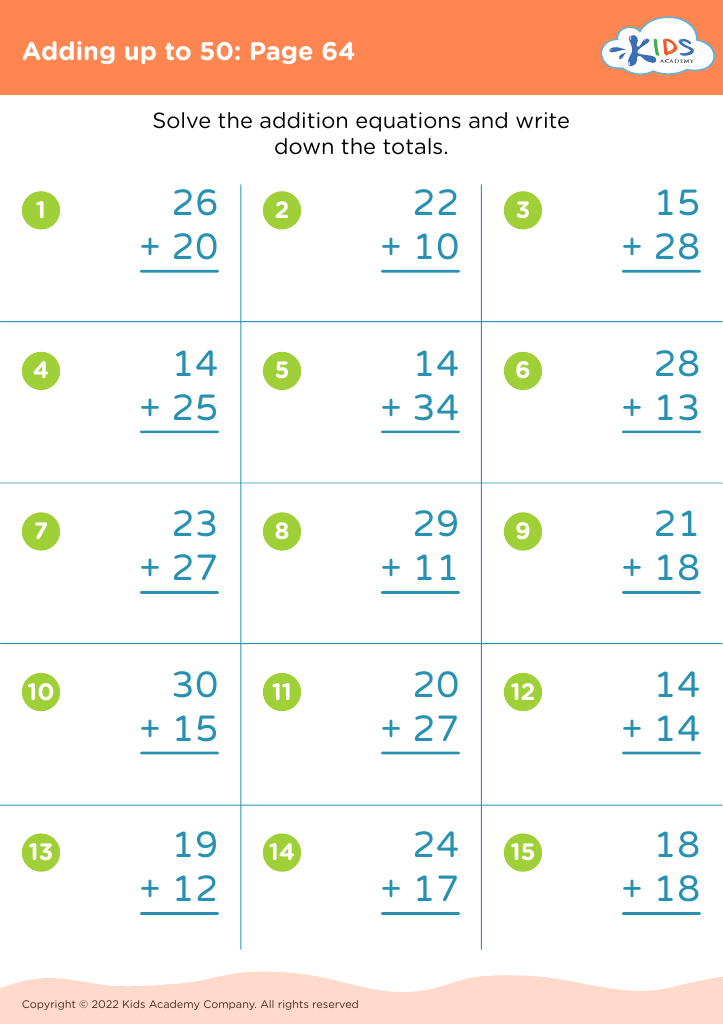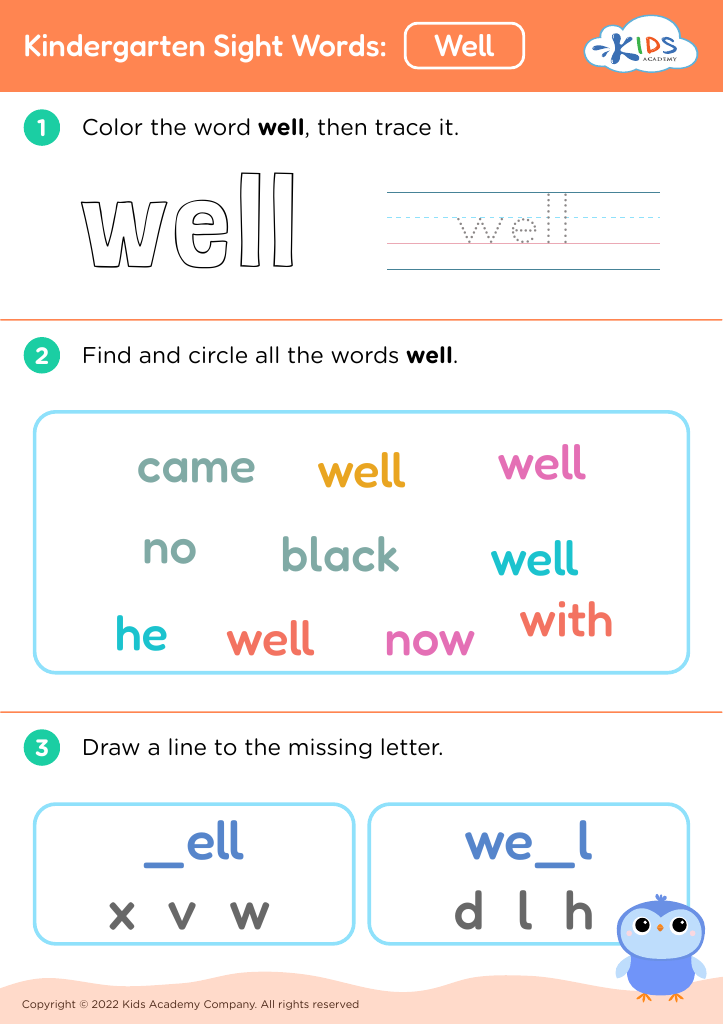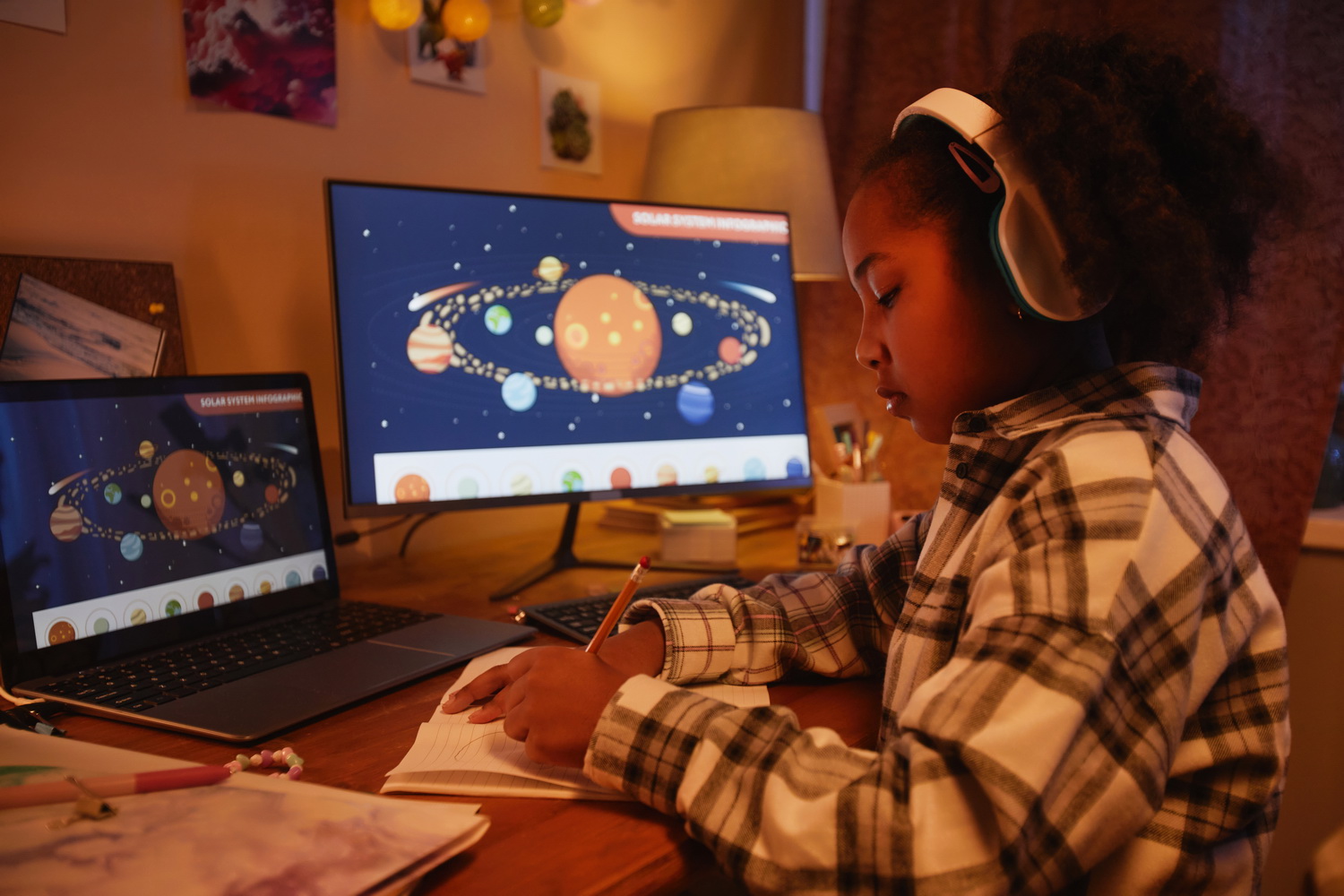Developing logical thinking Worksheets for Ages 5-9
10 filtered results
-
From - To
Our "Developing Logical Thinking Worksheets for Ages 5-9" are designed to cultivate essential problem-solving skills in young minds. Tailored for early learners, these engaging printable worksheets introduce kids to patterns, sequences, and critical reasoning through fun activities and games. Each worksheet encourages kids to analyze, compare, and deduce, laying a strong foundation for future academic success. Whether it's identifying missing shapes or solving simple puzzles, our worksheets make learning logical thinking an enjoyable adventure. Support your child's cognitive development and boost their confidence with our expertly crafted resources. Dive into logic with Kids Academy!
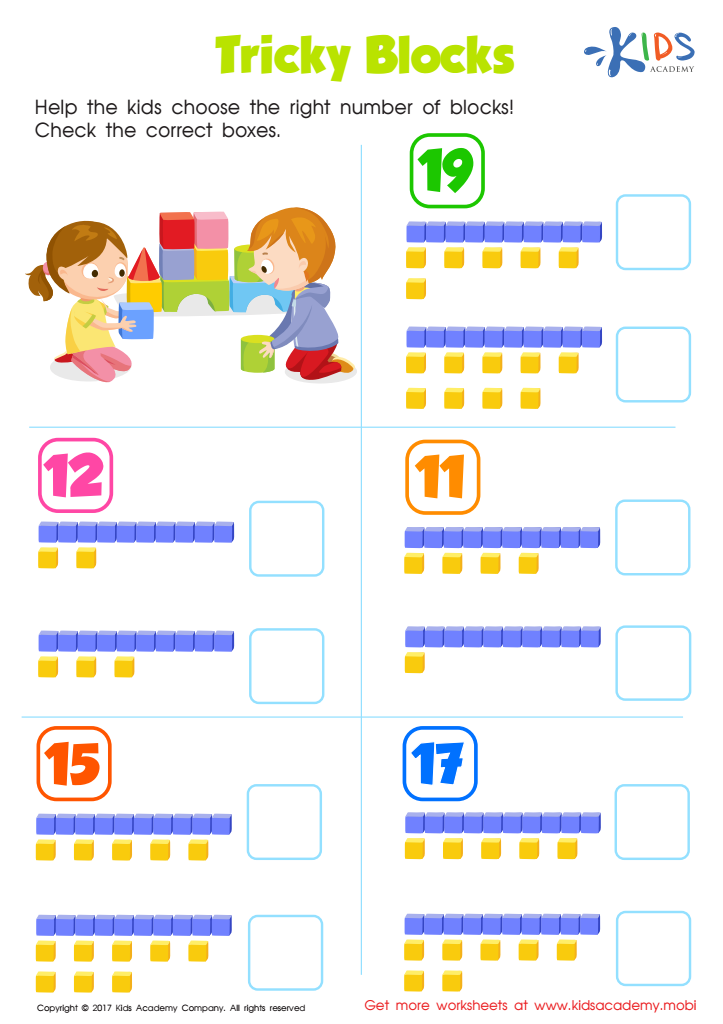

Tricky Blocks Worksheet
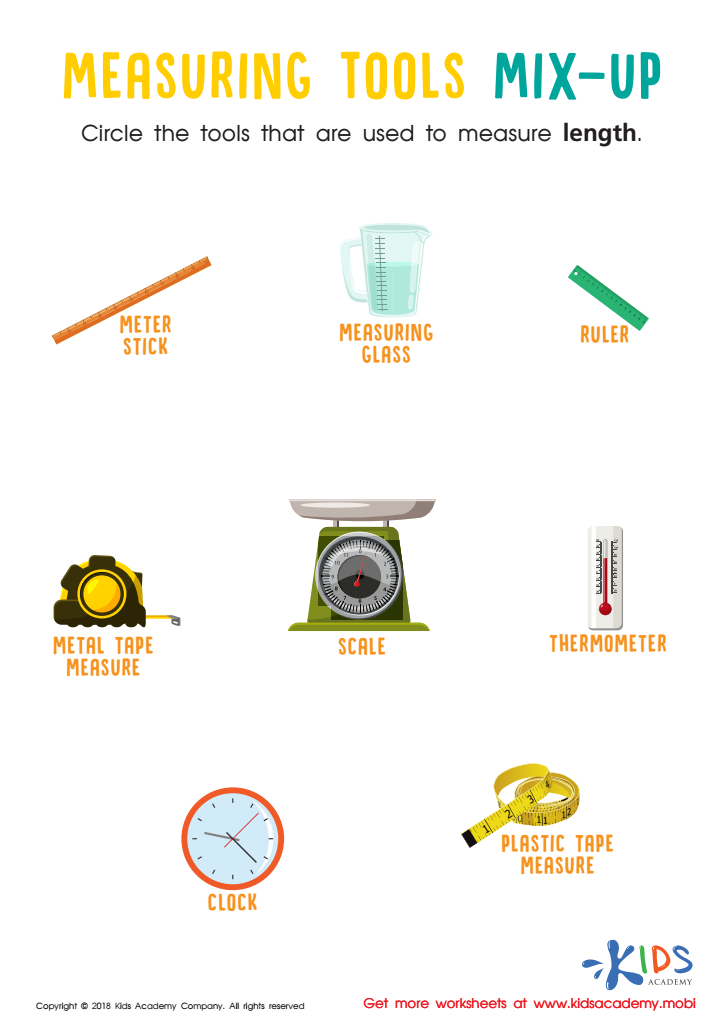

Measuring Tools Mix–up Worksheet
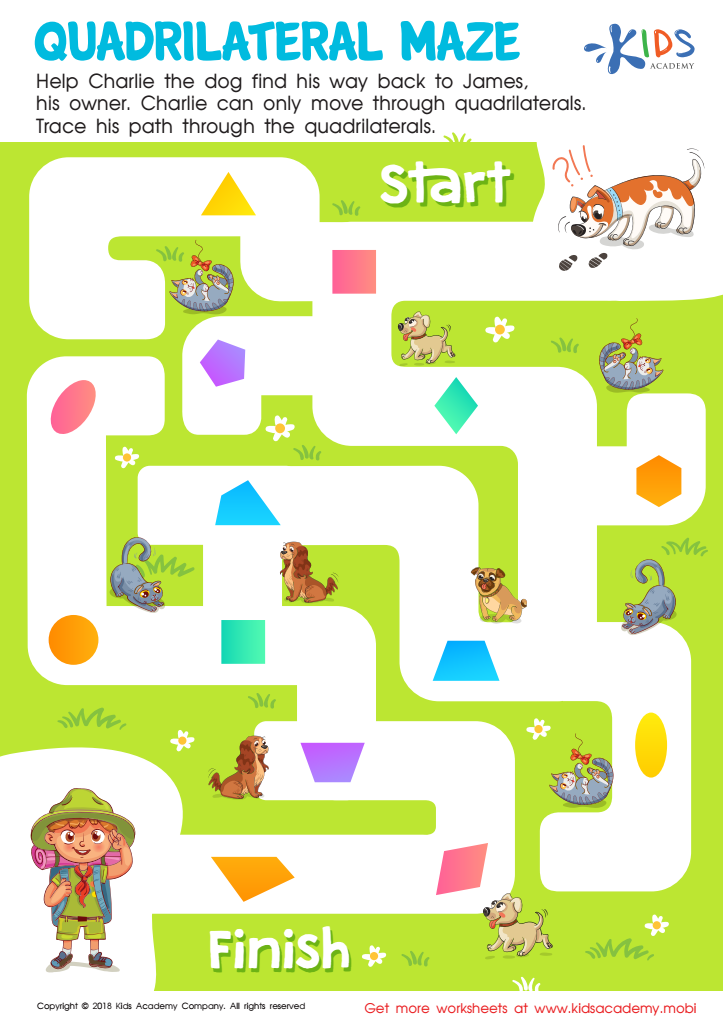

Quadrilateral Maze Worksheet
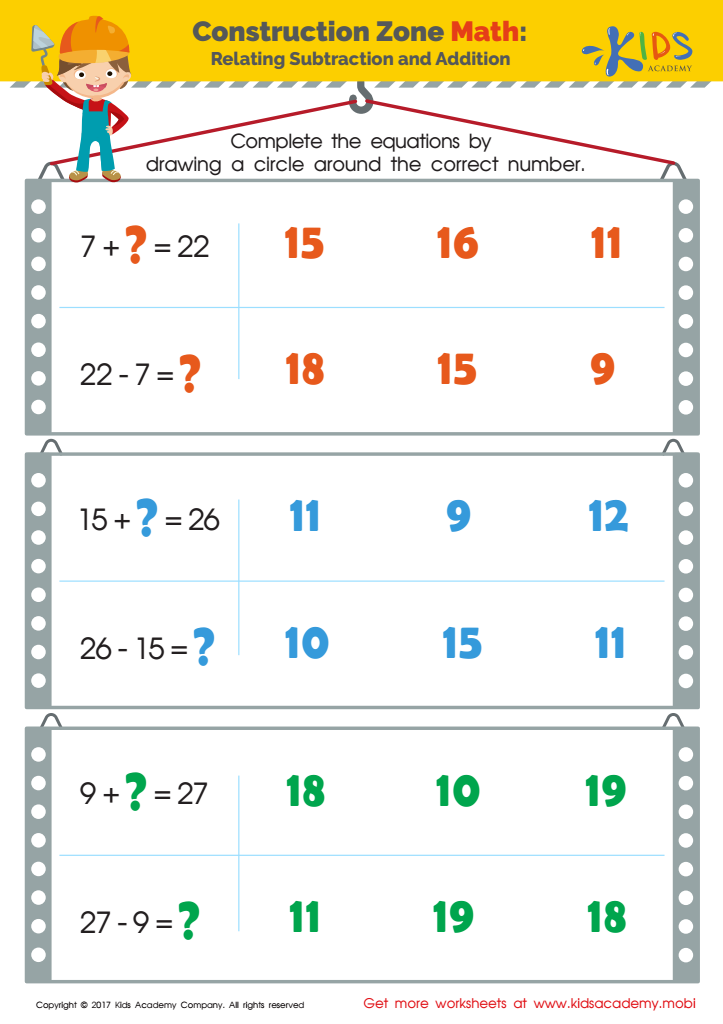

Related Addition and Subtraction Facts Worksheet
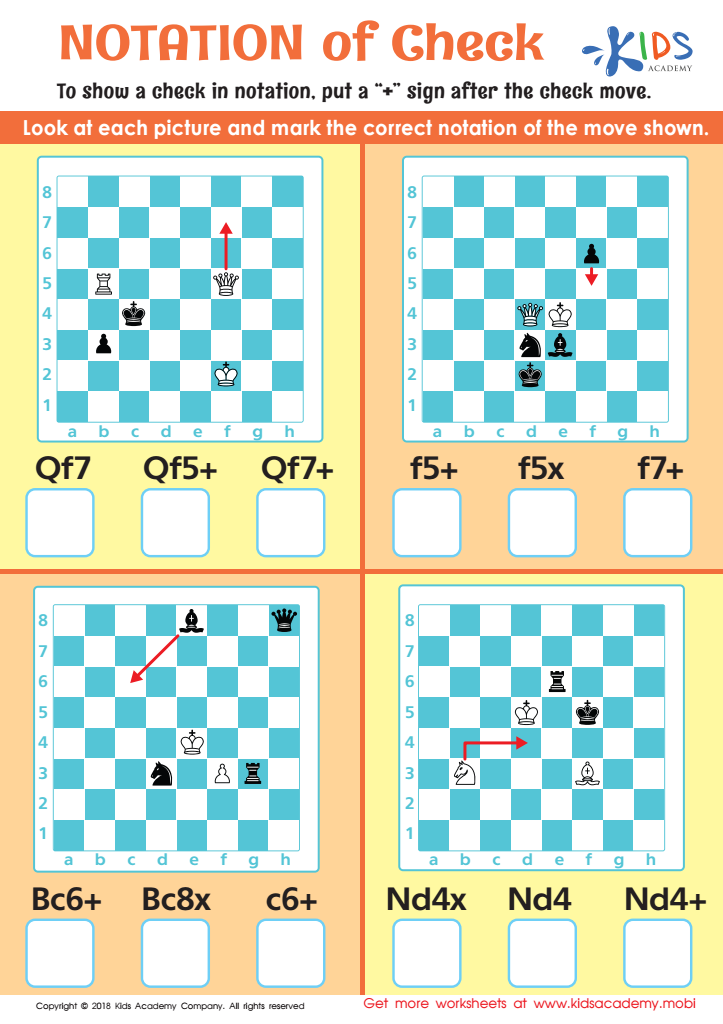

Notation of Check Worksheet
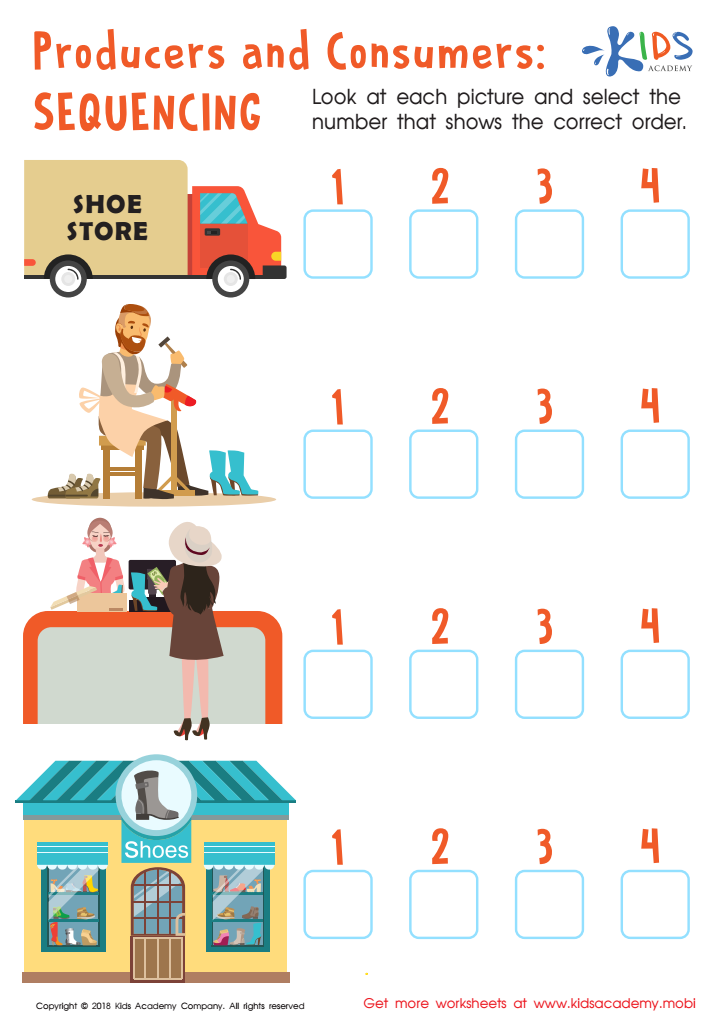

Producers and Consumers: Sequencing Worksheet
Parents and teachers should prioritize developing logical thinking in children aged 5-9 because it lays the foundation for critical problem-solving skills essential in all areas of life. During these formative years, children begin to move from concrete to more abstract modes of thinking. Enhancing logical reasoning helps them understand cause and effect, follow sequences, and recognize patterns – skills that are fundamental not only in mathematics and science but also in everyday decision-making.
By fostering logical thinking, children become better equipped to tackle academic challenges. They learn to break down complex problems into manageable steps, making it easier to understand new concepts and improve academic performance. It also helps in enhancing their reading comprehension, as logical thinking enables them to infer meaning, predict outcomes, and draw connections between different pieces of information.
Furthermore, developing logical thinking contributes to emotional and social growth. When children can think logically, they are better at resolving conflicts, understanding different perspectives, and making reasoned decisions. These skills are crucial for collaborative learning and building healthy relationships with peers.
Overall, emphasizing logical thinking during these crucial years not only supports academic success but also prepares children for a lifetime of effective problem-solving and informed decision-making, both essential for personal development and societal contribution.
 Assign to My Students
Assign to My Students

